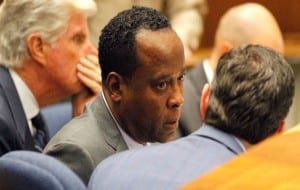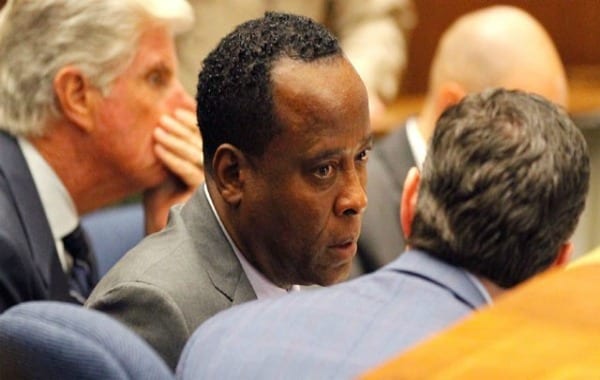
Sources close to the investigation told ABC News, none of the fingerprints on propofol bottles found in Michael Jackson’s bedroom or in his doctor’s possession belonged to the king of pop. That revelation might leave questions in Dr. Conrad Murray’s defense theory that Jackson himself took a lethal dose of propofol and the sedative lorazepam without Murray’s knowledge, creating a “perfect storm in his body that killed him instantly.”
Monday’s testimony in the manslaughter trial centered on the efforts of emergency room doctors at UCLA Medical Center to revive, an already dead king of pop. Murray’s one-time girlfriend Bridgette Morgan told jurors that she called Murray on the day of Jackson’s death, but that he didn’t pick up the phone.
Murray’s former girlfriends, Nicole Alvarez and Sade Anding, are expected to take the stand today. The prosecution says Murray had phone conversations with the women on the day Jackson died. Murray also shipped propofol bottles to Alvarez’s Santa Monica, Calif., home.
Cardiologist Thao Nguyen and Dr. Richelle Cooper said that Jackson appeared dead when they saw him and that he showed no signs of life throughout their efforts to try and revive him. Nguyen also testified that when she began to ask Murray questions, he was not able to tell her the time Jackson stopped breathing.
The defense did appear to support their argument when one of the emergency room doctors said that even if she had known that Jackson had taken propofol, she would not have been able to revive the singer.
The panel of seven men and five women heard testimony about the efforts to revive Jackson, who was thought to be dead at his rented mansion. Still, the singer was transported to Ronald Reagan UCLA Medical Center because Murray wanted life-saving efforts to continue.

